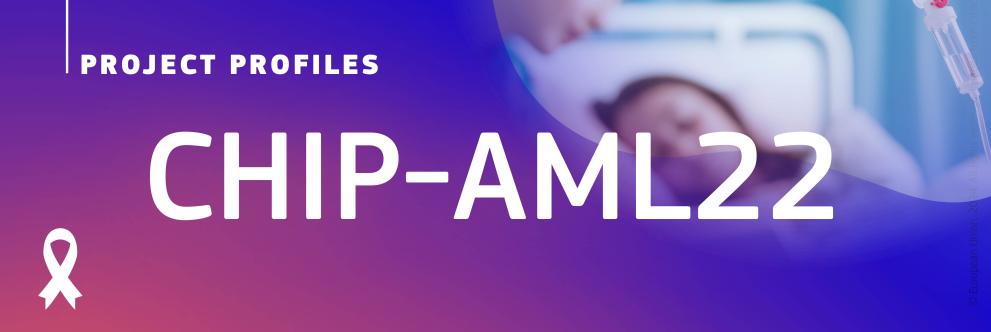
Today marks Rare Disease Day. Rare or low-prevalence complex diseases affect the daily lives of up to 36 million EU citizens.
To learn more about what the EU is doing to fight childhood acute myeloid leukaemia (AML) in Europe, HaDEA spoke with CHIP-AML22’s vice-chief investigator Dr. Kees-Jan Pronk and project coordinator Elise Witthoff. The project aims to improve the treatment outcome of childhood AML in the following EU countries: Sweden, Netherlands, Estonia, Lithuania, Latvia, Norway, Spain, Denmark, Finland, Belgium, Portugal, Iceland.
Improving AML treatments for children
Childhood acute myeloid leukemia (AML) is a rare and severe disease. Although treatment outcomes have shown improvement in recent years, three essential factors are crucial for achieving the most optimal treatment results: advanced diagnostics, evaluation of treatment response and access to modern anti-cancer agents. Unfortunately, in some countries, the opportunities afforded by these factors to children with AML are limited due to a lack of technical resources, inadequate funding or restrictions at the national legislative level.
The CHIP-AML22 protocol aims to ensure that the aforementioned three essential factors are implemented across all participating countries, thereby improving the treatment outcome for children with AML.
Overcoming implementation obstacles
In only a few participating countries, the advanced genetic analysis has been set up for offer to all newly diagnosed AML patients. Furthermore, the methods/protocols to perform the analysis varies across countries and it is desirable that all countries would instead perform the analyses in a similar way, so that data can be pooled and compared.
It is therefore desirable for all EU countries to adopt a standardised approach to analysis, facilitating data pooling and comparison.
Moving forward with EU support
EU support has helped implement these advanced diagnostics in a standardised way across Europe. Although these genetic diagnostics will soon become the standard care, they have yet to be fully integrated into clinical routines in many countries. Thanks to EU funding, the project will be able to continue setting up the infrastructure required to achieve its objectives.
Background information
EU4Health, with a budget of €5.3 billion, is the fourth and largest of the EU health programmes. The EU4Health programme goes beyond an ambitious response to the COVID-19 crisis to address the resilience of European healthcare systems. The programme provides funding to national authorities, health organisations and other bodies through grants and public procurement, contributing to a healthier Europe.
HaDEA manages the vast majority of the total EU4Health budget and implements the programme by managing calls for proposals and tenders from 2021 to 2027.
Details
- Publication date
- 29 February 2024
- Author
- European Health and Digital Executive Agency
- Programme Sector
- Health
- Programme
- EU4Health


